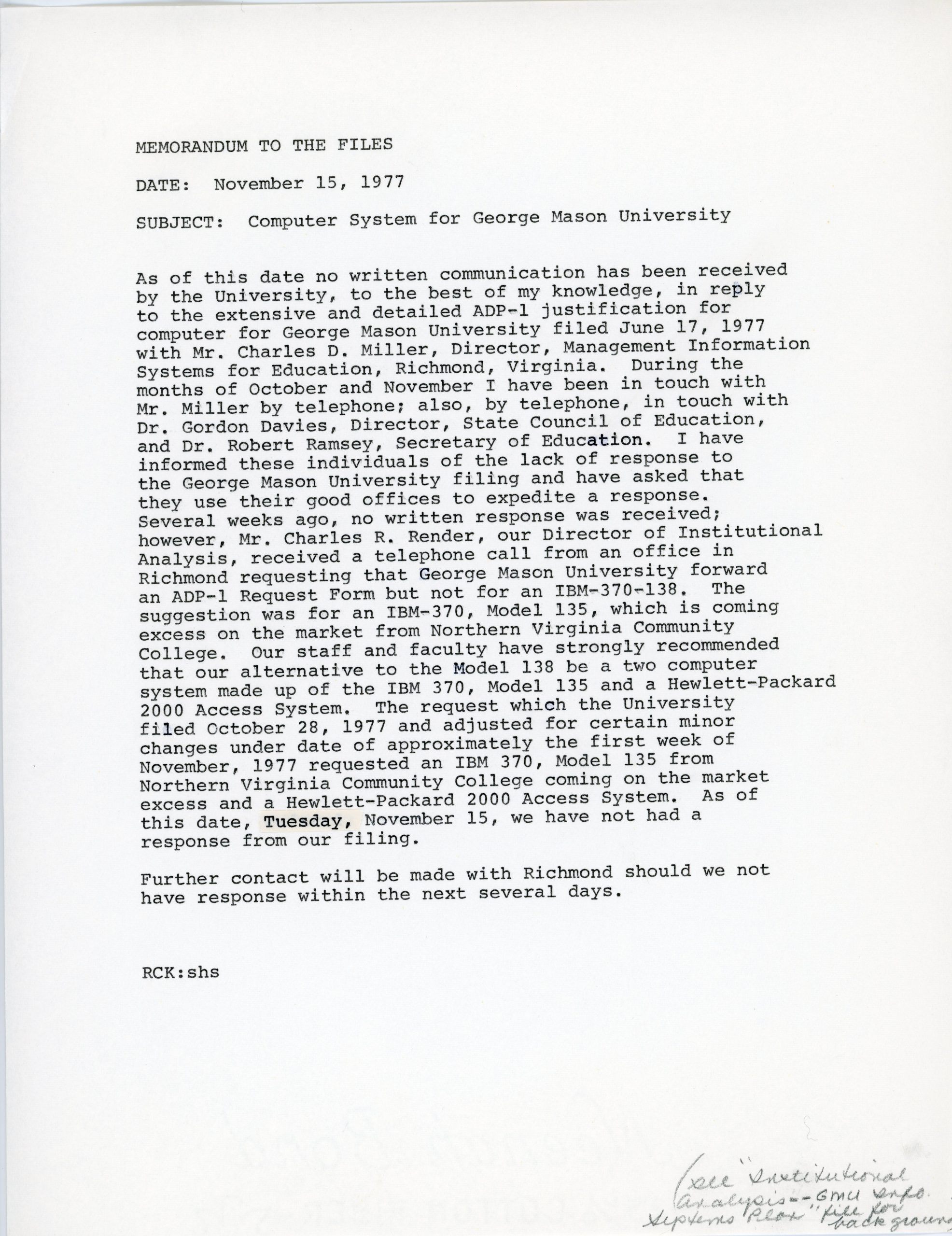This post was written by Lana Mason, Processing Student Assistant. Lana has an Associate of Arts degree in Fine Arts from Piedmont Virginia Community College. She is currently studying Art History at George Mason University. Lana was the recipient of the University Libraries Student Assistant Scholarship for the 2018-19 academic year.
This is the third post in a six-part blog series exploring the campus culture of George Mason University through the lens of each of its six past presidents’ tenures. The materials referenced in these posts are derived from the George Mason University Office of the President records (hyperlinked).

Robert Krug. Source.
Following Vergil Dykstra’s departure from George Mason University (GMU) in 1977, administrators began searching for someone who could assume the long-term position of president. During that interim period, however, the school required someone to function as acting president. The man chosen to fill this role was Robert C. Krug, who was at the time the Vice President of Academic Affairs. Krug was a natural choice for the role, as he had been with the school for many years and had performed in a variety of administrative positions. He also held a strong interest in promoting the university’s continued, rapid development. While he occupied his position for only a year, Krug was involved with a broad spectrum of institutional developments, and oversaw several notable projects. 
Krug was born and raised in Virginia, and lived in the state for much of his life. He held a Ph.D. in chemistry, and had both industrial and academic experience in the field prior to his arrival at what was then George Mason College (GMC). His first position at GMC was as the chairman of the Department of Chemistry in 1965. He became the Dean of the Summer Session, then the Dean of the College, then Dean of the Faculty and Dean of the Graduate Program by 1970. In 1972, he became the Provost and in 1974, the Vice President for Academic Affairs.[1] His commitment to the university and his varied administrative experiences gave him a robust understanding of the school’s needs and developmental potential.

Though his short tenure disallowed him from making as many contributions to campus development as other presidents, Krug nonetheless oversaw the development or completion of several notable projects. During his tenure, the first on-campus housing for the school was finally completed, a major milestone in GMU’s campus development. He also advocated for the purchase of the school’s very first computer system.[2] Krug also dedicated much of his efforts to working on the school’s budget in order to fund much-needed construction. Krug was intending on retiring soon when he became acting president of GMU. Therefore, George W. Johnson was quickly selected to assume long-term presidency in 1978. However, Krug chose to remain at GMU an additional year after Johnson’s selection, serving once again as Vice President of Academic Affairs before his retirement.
For more information on Robert C. Krug’s contributions to Mason history not contained in this collection, please refer to http://ahistoryofmason.gmu.edu/exhibits/show/independence/contents/krug
[1] “Robert C. Krug Vita,” circa 1977, George Mason University Office of the President records, R0019, series 5, 1.4, Special Collections Research Center, George Mason University Libraries. [2] “Computer system memorandum,” November 15, 1977, George Mason University Office of the President records, R0019, series 5, 2.1, Special Collections Research Center, George Mason University Libraries.
Follow Special Collections Research Center on Social Media at our Facebook, Instagram, and Twitter accounts. To search the collections held at Special Collections Research Center, go to our website and browse the finding aids by subject or title. You may also e-mail us at speccoll@gmu.edu or call 703-993-2220 if you would like to schedule an appointment, request materials, or if you have questions. Appointments are not necessary to request and view collections.

